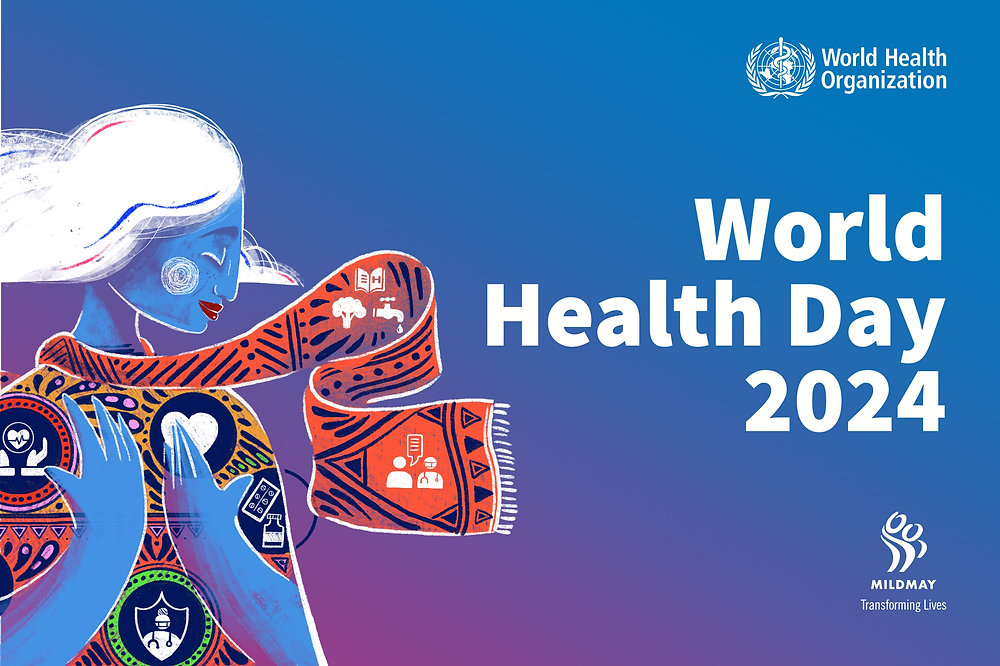World Health Day 2025
Why Health and Wellbeing Should Be at the Heart of Marketing
Every year on 7th April, the world comes together to celebrate World Health Day, raising awareness of global health challenges and advocating for better healthcare access and wellbeing. While the focus is often on public health policies, healthcare systems, and individual lifestyle choices, there’s another crucial player in this conversation: marketing.
The Marketing Made Clear Podcast
This article features content from the Marketing Made Clear podcast. You can listen along to this episode on Spotify:
Why Health Matters in Marketing
Marketing isn’t just about selling products – it’s about influencing behaviour, shaping perceptions, and ultimately, improving lives. From food and fitness brands to pharmaceutical companies and sustainable businesses, marketers play a significant role in promoting health-conscious decisions.
The Rise of Health-Conscious Consumers
Over the past decade, consumers have become increasingly aware of the impact of their choices – not just on their own health but on society and the planet. The demand for transparency, ethical marketing, and scientifically backed claims is higher than ever.
Brands that ignore this shift risk losing credibility.
Whether you’re in FMCG, fitness, tech, or pet nutrition, embracing health and wellbeing in your marketing isn’t just an option – it’s a necessity.

How Brands Can Champion Health and Wellbeing
Here’s how marketers can ensure that health and wellbeing are at the core of their campaigns:
-
Authenticity and Transparency – Consumers are increasingly wary of misleading claims. If your brand promotes health benefits, ensure they’re backed by science. Avoid “greenwashing” or “healthwashing” – it will only backfire.
-
Emotional Storytelling – Health is deeply personal. Crafting campaigns that share real-life stories of transformation, recovery, or improvement fosters trust and connection with your audience.
-
Ethical Messaging – Fear-based marketing or guilt-driven tactics should be avoided. Instead, focus on empowerment and positive reinforcement. Encouraging healthy choices should be about adding value, not instilling fear.
-
Employee Wellbeing Initiatives – Marketing isn’t just outward-facing. Brands that prioritise the health of their employees (flexible working, mental health support, wellness incentives) will naturally have a stronger, more authentic voice in the wellbeing space.
-
Sustainability and Ethical Responsibility – Health isn’t just about individuals; it’s about the environment too. From sustainable packaging to ethical sourcing, aligning with broader health-conscious values will help future-proof your brand.
Case Studies: Brands Leading the Way
-
Nike – Through campaigns like ‘Find Your Greatness’, Nike promotes exercise as a personal journey, making fitness feel accessible to all.
-
Huel – A disruptor in the food industry, Huel’s marketing focuses on complete nutrition, transparency, and sustainability.
-
Paleo Ridge – Leading the way in pet nutrition, the brand champions raw feeding and sustainability, ensuring pets have access to natural, healthy diets.
-
WHO’s ‘Health for All’ Campaign – This annual campaign sets the tone for global health marketing, proving that storytelling and education can drive significant behavioural shifts.
Looking Ahead: Marketing with a Purpose
As we mark World Health Day 2025, it’s a timely reminder that marketing has the power to influence better health choices – not just for individuals, but for society at large. Whether you’re crafting a campaign for a nutrition brand, a wellness startup, or even a corporate initiative, the key takeaway is this: marketing should always add value.
Health is not a trend; it’s a fundamental human right. Brands that align their messaging with genuine, purpose-driven health advocacy won’t just benefit from increased trust and loyalty – they’ll contribute to a better, healthier world


